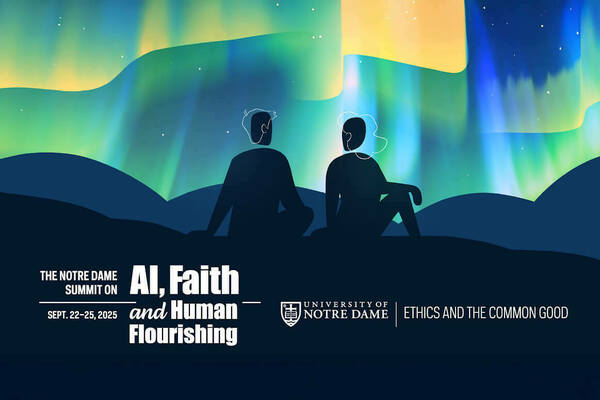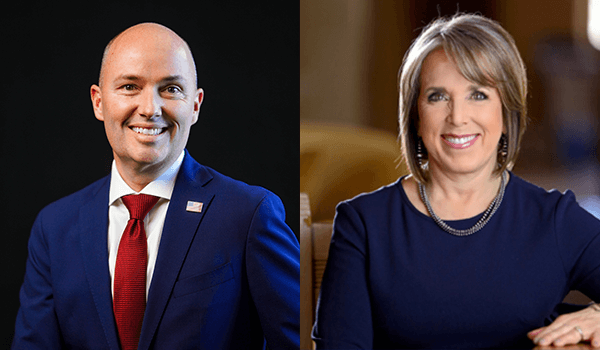Lessons from Venezuela’s democratic collapse: How opposition movements can defy autocratic leaders
Until the 1990s, Venezuela was home to one of the most established democracies in Latin America. Today, however, it stands as one of the region’s most firmly entrenched authoritarian regimes.
How did this shift occur, and what can other countries learn from Venezuela’s transformation?
A new paper from political scientist Laura Gamboa at the University of Notre Dame chronicles the country’s 25-year evolution, during which Hugo Chávez and his successor, Nicolás Maduro, destroyed a system of checks and balances, ended competitive elections, terminated political rights and civil liberties, and harmed or killed scores of political opponents along the way.
“The Venezuelan case provides several lessons for countries whose democracies are just beginning to erode,” Gamboa said. “It shows that you should use all of the institutional spaces you have while you have them. Not leveraging those spaces is a mistake.”
How Hugo Chávez seized power
Venezuela’s democracy began to erode in 1999, when newly elected President Hugo Chávez convened a constitutional assembly to draft a new constitution for the country — a power grab that was carried out without the approval of the National Congress.
Yet even after this power grab, the anti-Chavista coalition still controlled media outlets, exerted influence over the armed forces and the state-owned oil company, held seats in the legislature, received support from courts and oversight agencies, and had the ability to mobilize Venezuelans into the streets. Despite a significant presence within democratic institutions, the opposition chose instead to resist the erosion of democracy through radical strategies: a 2002 coup and the 2003 oil strike to push Chávez to resign.
These strategies cost the opposition important bureaucratic and state resources because they gave Chávez the reason he needed to purge the military, fire oil company managers, and use oil revenues to buy domestic and international support, Gamboa said.
“Using tactics like coups, boycotts or strikes can be effective ways to protest a government, but they can backfire when you leverage them against a popular and democratically elected president.”
By 2006, the anti-Chavista coalition had lost most of the institutional resources that had previously been available, such as an independent media, and Chávez had asserted more power by appointing loyalists to oversight agencies and the country’s courts. And yet, the opposition won back some elected offices in 2008 and 2015 and was able to use those elected offices to highlight some government abuses.
“We see from these successes that when you use institutions, there can be a good payoff,” Gamboa said.
Opposing Nicolás Maduro
Gamboa’s analysis showed that in recent years, even operating amid tight constraints, the opposition movement created opportunities to push against autocratization — for example, through Venezuela’s 2024 presidential elections. Though incumbent Nicolás Maduro declared victory amid widespread accusations of fraud, and despite several countries — including the U.S. — denouncing official results, opposition leader María Corina Machado announced that tallies from more than 70 percent of the country’s voting stations showed that Maduro’s opponent, Edmundo González, had received 3.5 million more votes than the president.
“No one expected Venezuela to have elections,” Gamboa said. “The opposition competed even though their ability to compete was diminished, and they won even though the odds of winning were very small. Yes, the regime clamped down, but it’s significant that the opposition was able to express itself in an electoral space.”
While the 2024 election results suggest that winning an electoral contest is possible in a highly authoritarian environment, Gamboa said, an election win is not enough to guarantee a transition to democracy.
“If the opposition chose to leverage both institutional and non-institutional strategies and use them together, that would probably be more powerful,” she said.

The author of “Resisting Backsliding: Opposition Strategies Against the Erosion of Democracy,” Gamboa has studied Venezuela since 2013. Her new study, published in a special issue of the Annals of the American Academy of Political and Social Science on democratic erosion, was informed by extensive fieldwork that included interviews and archival research.
Overall, Gamboa said, the case of Venezuela shows that democratic backsliding is a highly uncertain process, and more research on newer forms of autocratization and opposition strategies is needed. She is currently working on a book related to these issues, focusing on how regime type affects opposition strategies and their effectiveness.
“In the past two decades, we have seen a significant decline in democracy across the world,” she said. “Democracies have eroded into authoritarian regimes, and formerly weak autocracies have become more entrenched. For opposition movements in both of these cases, Venezuela offers lessons and hope.”
Originally published by at keough.nd.edu on March 21.
Contact: Tracy DeStazio, associate director of media relations, 574-631-9958 or tdestazi@nd.edu
Latest ND NewsWire
- Banks that identify fraudsters increase loyalty, retain more defrauded customers than others who never were compromisedIn a new research study, Vamsi Kanuri, the Viola D. Hank Associate Professor of Marketing at the University of Notre Dame’s Mendoza College of Business, found that banks that identify fraudsters earn customer loyalty and lose customers if they can’t say who was responsible for a fraudulent transaction.
- Notre Dame to host summit on AI, faith and human flourishing, introducing new DELTA frameworkThe Institute for Ethics and the Common Good and the Notre Dame Ethics Initiative will host the Notre Dame Summit on AI, Faith and Human Flourishing on the University’s campus from Monday, Sept. 22 through Thursday, Sept. 25. This event will draw together a dynamic, ecumenical group of educators, faith leaders, technologists, journalists, policymakers and young people who believe in the enduring relevance of Christian ethical thought in a world of powerful AI.
- Notre Dame Democracy Initiative hosts bipartisan conversation with Western state governorsTwo Western state governors known to work across the aisle on policy issues such as water, housing and energy will visit the University of Notre Dame for a fireside chat about how Western state pragmatism can serve as a model for the country to overcome polarization.
- In new research, Roy Scranton explores climate change and the limits of human progressIn his most recent book, “Impasse: Climate Change and the Limits of Progress,” Scranton, an associate professor of English, defines the impasse he sees as “not only political and institutional, but cognitive, existential and narrative” and asserts that the only path forward is through embracing what he terms ethical pessimism. “A lot of people confuse pessimism with nihilism, apathy and despair,” Scranton said. “But pessimism is actually about recognizing our limits, letting go of unrealistic goals, finding solidarity in the fact of human suffering and doing what you can now, not in some utopian future.
- Notre Dame MBA launches deferred admission programThe Notre Dame MBA Deferred Admission Program allows candidates with little or no work experience, including college seniors, to secure admission before reaching the recommended three years of work experience to enroll.
- ‘Prebunking’ false election claims may boost trust in electionsIn recent years, democracies worldwide have seen a growing erosion of trust in election outcomes and institutions, driven in part by fears of widespread fraud. New Notre Dame research finds that “prebunking” — providing accurate information before false claims spread — boosts trust in elections more effectively than traditional fact-checking.













